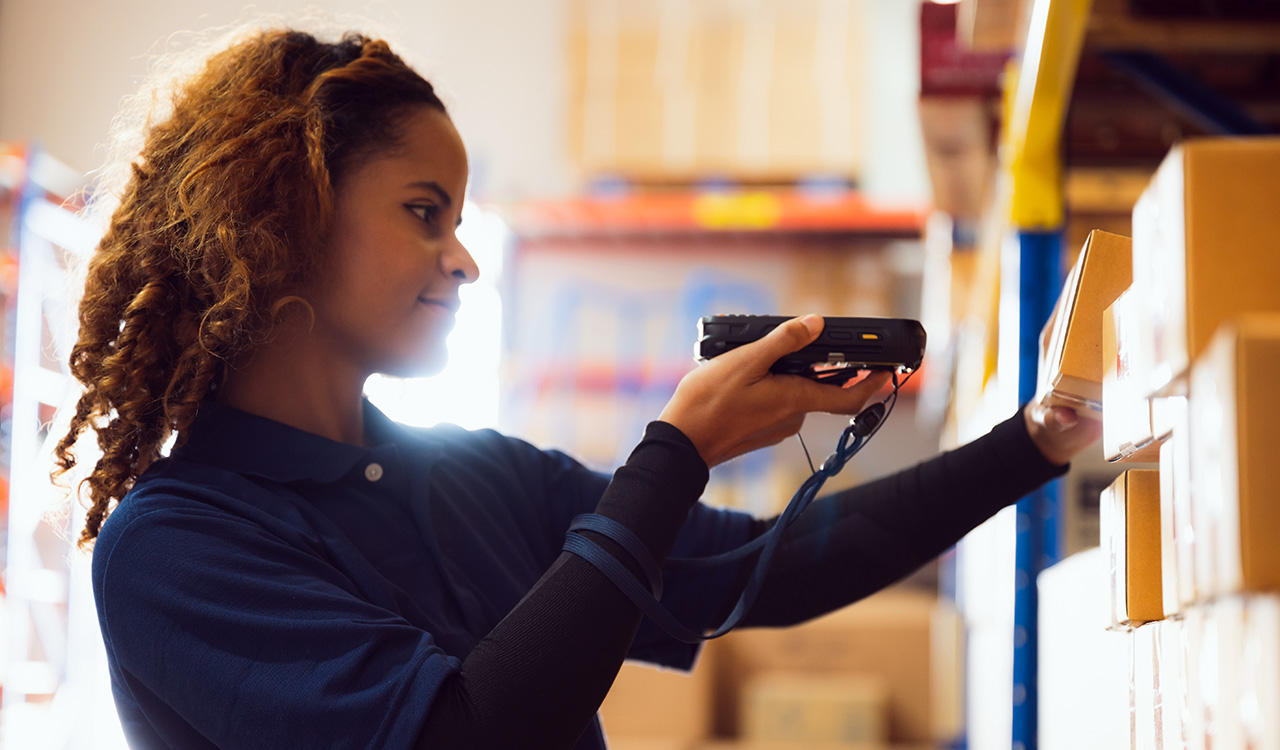The omnichannel fitness/lifestyle brand has exploded in the pandemic economy. Peloton was founded in 2012 by John Foley. The founder previously served a brief stint as the CEO of Barnes and Noble, preceded by a variety of dot com positions. Foley discussed his years-long battle with the venture capital community as he persistently pitched his concept. In a 2019 interview with NPR\’s Guy Raz Foley, he explained, \”I would bet I pitched three times a day for four years…I probably pitched 3,000 people, and then the 400 institutions that all said no.\” The investors who took a pass may rue the day as the company recently announced that its sales had more than tripled to $757.9 million from $228 million in the same quarter last year. Ardent customers are grudgingly enduring a 10-12 week wait for the brand\’s popular bike while competing brands are readily available and many gyms have reopened with their own bikes. The company’s stock price increased by 434 percent in 2020. Rumors are flying that the company is an acquisition prospect for Apple. That’s a phenomenal success story, especially during a global pandemic. And it’s more than right time, right place.
[callout]Peloton’s significant value is the emotional connection and engagement it develops with members, and how it engages the community to reinforce it.[/callout]
Increased interest in health, wellness, and fitness makes sense during a high-risk health crisis. Add stay-at-home measures to the mix and the explosion in at-home fitness is a logical outcome. Perhaps Maslow\’s hierarchy of needs has, like a virus, mutated with physical and mental health shifting from to the top of self-actualization to the base of the pyramid as basic needs, especially during a global health crisis. What is curious is the unappeasable demand for a singular exercise product, the Peloton stationary bike. YouGov research conducted in spring 2020 found that the number of Americans considering buying a Peloton bike shot up five-fold from Q4 2019 to the end of Q1 2020.
High-End Connected and Competitive
The connected fitness category solves multiple needs. In addition to the baseline physical and mental health benefits to users, it is social, entertaining, competitive and Covid-safe.
- One high-end, connected brand is Mirror, the reflective glass fitness device, which was acquired in 2020 by Lululemon Athletica and Tonal. It is a wall-mounted, strength-training home gym.
- Increased competition is anticipated from Apple, particularly since the tech giant recently introduced Fitness+, built around the Apple Watch.
- Soul Cycle, owned by Equinox, is back as Peloton’s long-time rival in the clique of high-end, screen-centric, connected fitness. Pre-pandemic, Soul Cycle led Peloton in cycling studio classes, but that lead dissolved as the studios went dark in the early days of Covid-19. Soul Cycle was slow to online adoption and proprietary equipment sales. As Soul Cycle was fighting for relevance in the spring, Peloton dialed up its committed customer base of owners, subscribers, and a deep back-catalog of extensive programming that the company had created over many years
Market Expansions
Other challengers to Peloton\’s dominance have surfaced, primarily targeting a more cost-conscious consumer.
- Goldman Sachs recently announced that it is leading a $65 million financing round in Echelon Fitness, a Tennessee-based company launched in 2017. Echelon offers connected equipment and online content streamed from their Chattanooga studio. It sells its products directly and through third-party sellers including Costco, Target, and Amazon.
- Nordic Track\’s owner, Icon Health, raised $200 million to expand its connected fitness presence and is selling at a slightly lower price point than Peloton.
Peloton recently upped its game by offering an upgraded, even pricier option, the Bike Plus, while reducing the cost of its signature model by $350. It is developing a more affordable treadmill to be introduced later this year.
Iterations
As Peloton takes on the lower-end competition through reduced pricing, it is aggressively investing its pandemic bounty in both an improved supply chain and expanding prospective markets. The company recently announced the acquisition of the fitness equipment maker Precor for $420 million. Precor, with factory capacity in North Carolina and Washington, will enable vertical integration, onshore production capabilities to reduce future delivery delays, and the potential incorporation of Precor\’s large base of commercial customers including gyms, hotels, professional sports facilities, and schools into Peloton\’s domain.
While these upper funnel activities are forward looking, Peloton is continuously strengthening its bottom line. The company\’s baked-in advantage is hardware. In a loyalty dynamic that mimics Apple, when a Peloton customer invests in the company\’s high-end product, that spend encourages a durable commitment. Peloton’s advantage in that commitment is income created through the subscription model. The consistent influx of fees continues even if the customer rarely makes a new purchase. Just like membership at a gym.
Unrelenting Appeal
Business Insider recently probed the mysteries of the company\’s loyal, bordering on cultish customer base. Referencing research conducted by the investment firm Wedbush, Emily Canal wrote, \”A whopping 69 percent of Peloton bike users were \’very satisfied\’ with their experience, while another 28 percent were \’satisfied\’, totaling 97 percent.\” A force behind the high satisfaction results is data. Peloton holds a cache of online customer data culled over nearly a decade. This data is Peloton\’s secret sauce and informs the brand\’s direction in class strategies including development and scheduling, delivery methods, musical preferences, instructor popularity and so on.
While the data can trigger customer response, it is not the puppet master it may imply. Of significant value is the emotional connection and engagement Peloton develops with members, and how it engages its community to reinforce it. People can connect to family members, friends, and co-workers as they ride virtually. Customers can compete and rank themselves against millions of others from around the world. During live classes, there are shout-outs from instructors for reaching individual milestones. There are virtual and physical achievement markers that signify Peloton targets. The prized Century T-shirt marks a member\’s first 100 rides. You can\’t buy the shirt; you must earn it. The Century shirt is a tangible symbol of an individual’s commitment to Peloton and the values the brand shares.
Gratitude
Peloton\’s emotional connection with members is supported by the values reflected in the company\’s social impact initiatives, not to mention its marketing savvy.
- In November the company announced a multi-year collaboration with Beyoncé. Dovetailing with this agreement was a month-long offer to students at participating HBCUs for a free digital two-year membership. The company committed to \”build on its relationships with each of these schools to pursue long-term recruiting partnerships at both the internship and undergraduate levels\”.
- The brand established the Comeback program offering free bikes and three-year memberships to individuals overcoming hardship. During Covid it extended that program to include frontline, volunteer, medical, and hospital workers.
- As the economic impact of the pandemic set in, Peloton established a membership relief fund to waive two months of subscription fees for members experiencing financial hardship.
- To counter the pandemic induced hunger crisis, Peloton has donated 2.5 million meals to the Food Bank of New York.
Strengthening the Connection
Peloton is now in the enviable position to deepen its relevance to members, particularly those who adopted it as a substitute for previous routines. Content innovation such as the multi-year collaboration with Beyoncé, \”rooted in the celebration of music,\” is an example. The relationship kicked off with themed workouts commemorating homecoming, a significant fall tradition at the country\’s historically black colleges and universities, which were celebrating the festivities online due to the pandemic. This prescient initiative demonstrates how Peloton can not only expand its audience, but also offer fresh content across its community.
Cross-Marketing
With the loyalty and trust of its customers, Peloton is taking a deeper dive into the crossover between fitness and apparel, offering its fans new ways to show its membership in the Peloton tribe. Past apparel collaborations included designs of Jean-Michel Basquiat with Outdoor Voices, Fila, and others. A strong apparel play offers Peloton an accessible gateway to new enthusiasts, a play in the luxury fitness apparel game, and an opportunity for established customers to make a purchase without moving the furniture around.
Looking Ahead
While Peloton has been firing on all cylinders, the post-pandemic prospects for the omnichannel brand are still widely discussed in investment circles, and rumors of a purchase by Apple persist. Apple is cash-rich and Peloton\’s strengths fuse with the brand\’s health and wellness ambitions, but the recent soar in valuation could make it less appealing as an acquisition candidate. Investors should expect some volatility as the valuation of “at-home” stocks may sag, but the but Research firm Mintel predicts that some behaviors will persist. The firm\’s Global COVID-19 Tracker-US survey found, \”When considering post-Covid-19 life, adults are not rushing back to activities or commitments that put them in crowded locations or proximity with others. When asked what they are most looking forward to doing once social distancing measures are relaxed, merely 17 percent said going back to their usual exercise routine.\”
So, what is the answer to the vexing question of “What is it about Peloton?” it likely lies in a combination of the right business at the right time managed by nimble leadership. Peloton did not let \”A good crisis go to waste.\” The company is in a great position to respond to consumers’ evolving behaviors as old habits are transformed by the necessities of the past year. Yes, our social lives will finally return in person, but perhaps not return to pre-pandemic normal. That should fall right into the open arms of Peloton.




